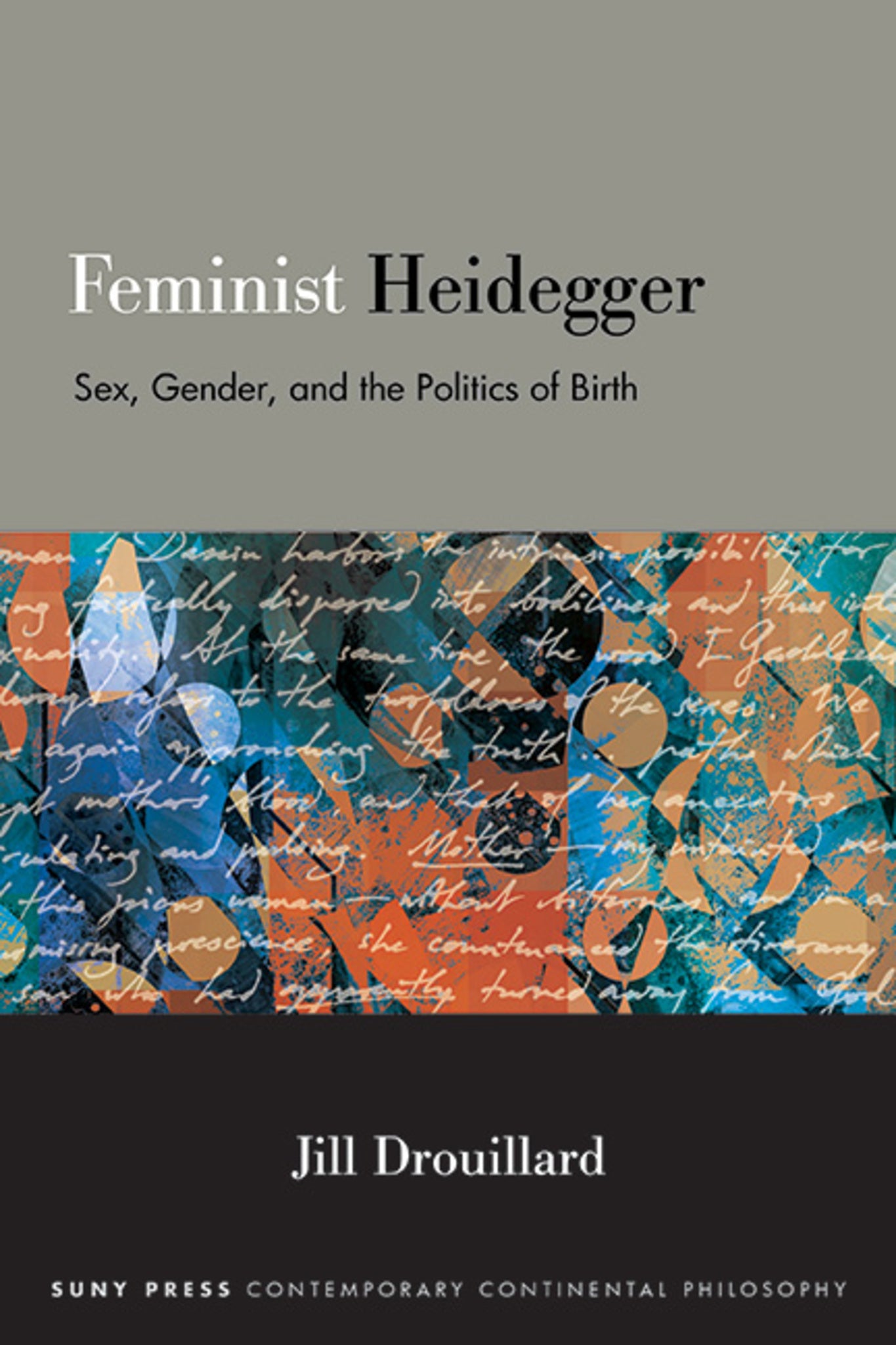We're sorry. An error has occurred
Please cancel or retry.
Feminist Heidegger

Some error occured while loading the Quick View. Please close the Quick View and try reloading the page.
Couldn't load pickup availability
- Format:
-
01 March 2025

A feminist reading of how Heidegger may have responded to an unanswered questioned he posed in 1923, "Problem: What is woman?" while using his thought to better understand how contemporary society replies to questions in the realms of law, bioethics, pedagogy, and politics.
This book begins with an unexplored and unanswered question that Martin Heidegger raises in a 1923 Freiburg course: "Problem: What is woman?" Yet, why should we care that Heidegger raises this "problem"? What could he, a member of the National Socialist Party, help feminists understand about responding to "the woman question"? How can Heidegger help us understand our own historical climate in which this question continues to hold significance? Jill Drouillard divides Heidegger's thought into two categories to think about the sexed/gendered experiences that coordinate our birth: (1) the one that suspends "the woman question" and that provides useful resources for thinking the fluidity of sex/gender, and (2) the one that provides a totalized reply to this query by manipulating tropes of the feminine to advance a politico-poetic project of Nazi politics. She uses Heidegger as a cautionary tale to demonstrate the harm that occurs when society tries to define the being (or "what is") of woman in any definite sense. In some chapters, she teases apart how Heidegger may have offered a reply to "the woman question" and, in others, shows what happens in today's society when law, bioethics, politics, and pedagogy reckon with this query.


"This is a book the field has been waiting for. It is a sustained feminist study of Heidegger's opus and also a work of feminist philosophy that is attuned to the most pressing questions of today. It will shape the questions to come." — Anne O'Byrne, author of Natality and Finitude
Acknowledgments
Abbreviations: Selected Works by Martin Heidegger
Introduction
Feminist Heidegger: Sex, Gender, and the Politics of Birth
The Challenge of Embracing a Collective Identity that Preserves Differences
Feminist Standpoint Epistemology and My Reading of Heidegger
Rethinking the Body and Birth of Finite Dasein
Part I: Heidegger's Sex/Gender Neutrality and the Politics of Birth
Chapter 1
"You're Already off the Clock": Temporalizing Laboring Dasein
A Phenomenology of Laboring Dasein: Primordial Time versus Shared Time
Authentic Temporality as a Poiēsis of Birth
Chapter 2
Problem: What Is Woman? The Hermeneutics of Sex/Gender Facticity
Problem: What Is Woman?
Ontology: The Hermeneutics of Facticity and Ontological Sex Inequality
The Metaphysical Foundations of Logic and the Primacy of Sexual Difference
Transcendence, World-Forming, and Care
The Privileging of Sexual Difference and Biology
Implications of Heidegger's Sexed/Gendered Bodies (Körper/Leib)
Chapter 3
Queering Gestell: Partial Enframing, Racial Breeding, and Assisted Reproductive Technology
Framing
Reproductive Enframing
Coda: Race as Technology in Reproductive Enframing
Race as Technology
The (Re)Production of Race in France
Rethinking Race and Reproductive Enframing with Heidegger
Chapter 4
Bodyreading Grumet and Heidegger: "Setting Up" Feminist Pedagogy and "Reproducing" the Curriculum
Hermes, Messenger and Caregiver
Bitter Milk and Standing Reserve Classrooms
Setting Up Feminist Pedagogy
Part II: Heidegger's Grounding of Sex/Gender and the Politics of Birth
Chapter 5
A Feminist Reading of the Black Notebooks: The Eternal Feminine, Peasant Women, and "Being a People"
The Historicity of Beyng and the Eternal Feminine
The Blood and Soil of Peasant Women
Sexual Tension in Trakl's Poetic Work: (Pro)Creating a People
Chapter 6
Bridging Heidegger after the Black Notebooks: Of Worlds, Not Words
Worldless Jews, Genos, and Polemos
Borderlands, Multiplicitous Selves, and Playful World-Traveling
Anzaldúa's Bridge and Anaximander's Apeiron
Zurn's Trans Poetics of Dust
The Creative Impotence of the University and Making Sense at the Margins
The "In-Between" and Border Consciousness of Dust
Notes
Bibliography
Index



